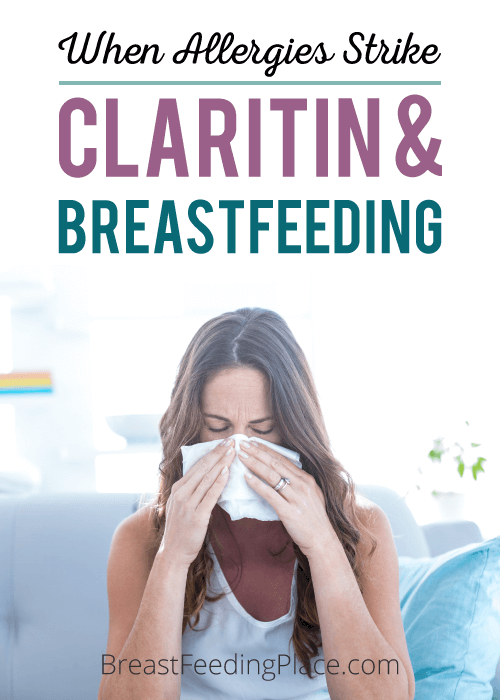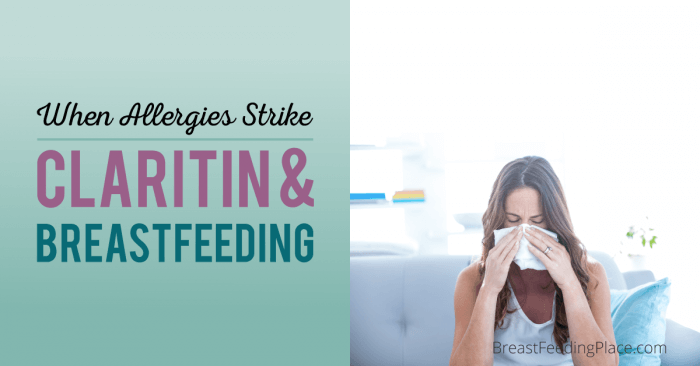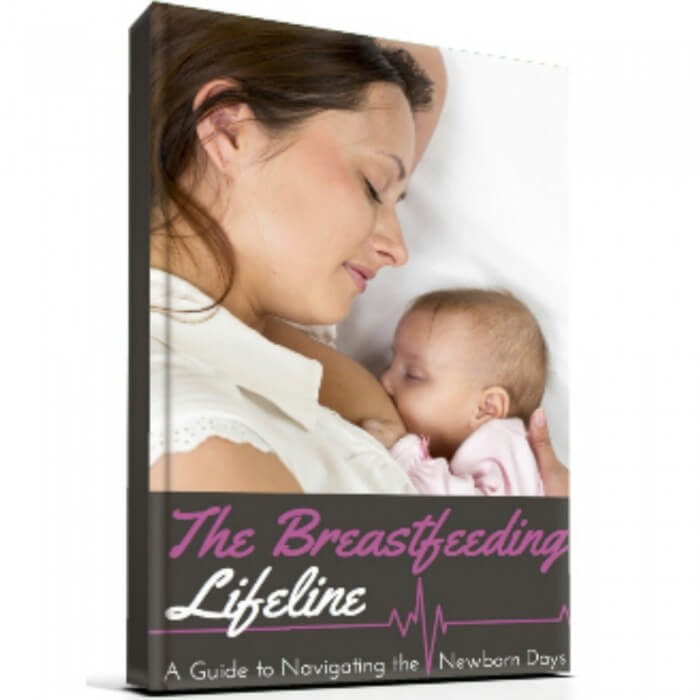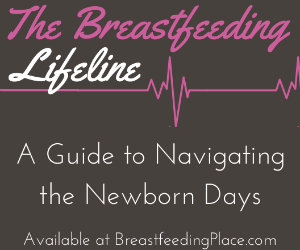Allergy symptoms can make you feel awful, but we all know that moms don’t get to call in sick. Relief from allergies is important and doing it safely while breastfeeding is even more important. Do Claritin and breastfeeding mix? What about other allergy medications?

To find out if taking Claritin and breastfeeding is safe, I went to an expert in the lactation field. Dr. Thomas Hale has been studying breast milk for 26 years and is currently the head of Infant Risk at Texas Tech Medical School.
Have you ever noticed that on the back of nearly all medications it says to consult a doctor if pregnant or breastfeeding? The reason why it says that is because the pharmaceutical companies haven’t researched the safety of their medication on pregnant or breastfeeding women. Thus, they don’t know if it is safe, so they want you to talk to a doctor. Thankfully, Dr. Hale has done the research.
The mission of Infant Risk is to educate doctors on the safety of medications by researching how much medication transfers to the baby through breast milk. I called Infant Risk to speak with Patsy Rickwartz, who is a registered nurse.
Patsy explained to me that medical professionals assign each medication a level based on the safety of taking that medication while breastfeeding. “L1” is the safest level with the least amount of risk. “L5” has the highest amount of risk and medical professionals do not recommend it for nursing mothers.
Claritin and Breastfeeding: What’s Safe and What Isn’t
Claritin – L1: Claritin is considered safe for breastfeeding. Only 0.3-1.2% of the medication will be transferred through the breast milk to the baby. It is important to note that this is for plain Claritin only. Claritin D is not recommended for breastfeeding because of the decongestant that has been added to the allergy medication. (More about decongestants below.) If buying the generic brand, look for the active ingredient Loratidine.
Other Allergy Medications and Breastfeeding
Zyrtec – L2: This has a higher risk level than Claritin because there hasn’t been enough research. However, studies done on dogs suggest that 3% is transferred through breast milk. If buying the generic brand, look for the active ingredient Cetirizine.
Allegra – L2: Professionals believe that 0.5-0.7% transfers through breast milk. If buying the generic brand, look for the active ingredient Fexofenadine.
Benadryl, Aller Clore, & Dimatapp – These allergy medications are not recommended for breastfeeding mothers. They can make you sleepy, which means they are sedating. That sedation can pass on to the infant through breast milk. In an infant, the medication may cause breathing problems.
Decongestants and Breastfeeding
The general recommendation for breastfeeding mothers is avoid taking medications that contain a decongestant. Decongestants have the potential to lower your milk supply. My own midwife has cautioned me on using decongestants and said that at one time it was believed that a mother’s milk supply would drop only while taking the drug, but instead it has the potential to permanently lower her supply.
Avoid medications that contain the active ingredients Pseudoephedrine and Phenylephrine. These ingredients are in Claritin D, Zyrtec-D, Sudafed, and Vicks Sinex Nasal.

Is there a natural alternative?
It is nice to know that there are some safe allergy medications available to breastfeeding mothers, but there is another option. To avoid all medications, one option is to try raw local honey. Some people have had great success diminishing their seasonal allergies by eating 2-3 teaspoons a day of raw local honey. For more information about how honey can help with allergies and to hear one woman’s success story, read Say Goodbye to Allergies with Raw Local Honey.
Thank you to Patsy Rickwartz for explaining Dr. Hale’s research. Also, thank you to Dr. Thomas Hale for all the work you’ve done to study the safety of medications and breastfeeding.
Have you ever wondered about Claritin and breastfeeding? What do you do for allergies while breastfeeding?
Resources
Infant Risk Center – Allergy Medications for Breastfeeding Moms






[…] When Allergies Strike: Claritin and Breastfeeding […]